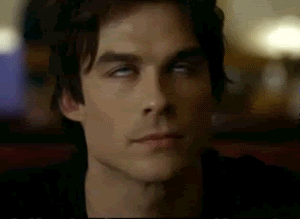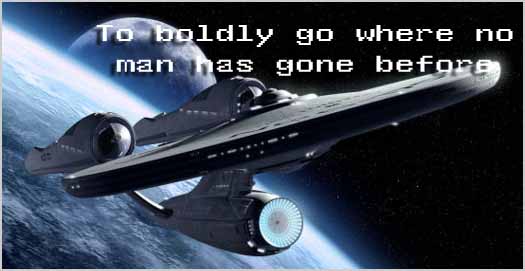Blog Happenings
All this month's blog posts were scheduled ahead of time and it was lovely. Because of that I managed to give you all four full weeks' worth of posts (minus my Sunday book reviews) so you may all thank the scheduling feature of Blogger very much.
- I enlightened you all about my incomplete and ridiculously long writing process.
- Aimee Meester of To the Barricade! did an awesome guest post on why characters need motivation!
- I ranted about the problems of reading too many books.
- My cats got the chance to show themselves off in a one-time off-topic post.
- I did a series of posts on three different cliches: Why is the orphaned protagonist cliche still used and how can you mix it up? Why is the cliche YA love triangle so irritating and what are the ways to remove the cliche-ness? What should you do to make your chosen one cliche work?
- Aimee Meester was also so kind as to let me guest post for her blog. You can check out my post "One Simple Way to Add Dimension to Your Characters" over at To the Barricade!
Books!
(All links to Goodreads)
This month I finished three novels. Not as many as usual because of Camp NaNoWriMo . . . even though, considering how that went, I really don't have much of an excuse. *sigh* More on that later.
- Doctor Jekyll and Mister Hyde by Robert Louis Stevenson
- Half Blood by Jaye L. Knight
- The Unlikely Hero of Room 13B by Teresa Toten
I didn't post reviews of anything this month but they're coming, I promise!
My bookshelf stock has increased quite a lot for some reason this month as well, and now I have about twenty books all piled up to read in August.
- Doctor Jekyll and Mr. Hyde by Robert Louis Stevenson (for a two-person book club)
- Heartless by Anne Elisabeth Stengle (Thriftbooks, that amazing website)
- Veiled Rose by Anne Elisabeth Stengle (Thriftbooks)
- Captives by Jill Williamson (Thriftbooks - I've started reading it but haven't had time to finish it yet)
- How to Be a Villain: Evil Laughs, Secret Lairs, Master Plans, and More!!! by Neil Zawacki (gift)
- The Villain's Guide to Better Living by Neil Zawacki (gift)
- Inventing the Individual: The Origins of Western Liberalism by Larry Siedentop (received this in the mail from my college honors program director to read before the fall. So far it is interesting if a TAD inaccurate about Christianity and Jesus Christ.)
My favorite book of the month was probably Doctor Jekyll and Mister Hyde just because of its depth. I didn't really have a least favorite, though I expected more from Half Blood.
Writing
Camp NaNoWriMo!!!!! Errr . . . failed. I think I mentioned already that I doubled my word goal to 100,000 words. I swear I was doing excellently for the first week. Then something drained my motivation reserves and I just . . . stopped. *headdesk* There were a few valiant efforts to start again but none of them stuck. Still, I did achieve over 29,000 words (the vast majority in that first week) so it wasn't a complete waste. I just can't really consider it a success either because I didn't meet my goals.
A few character quotes popped out this month from Ace, so I'll share those. They're in chronological order. Click to enlarge.
Ace is my new baby and I love him so much. *cuddles him* This month's Beautiful People was done on him (again, I know) and you can read that here. I'll try to do next month's on someone else, I promise.
A few character quotes popped out this month from Ace, so I'll share those. They're in chronological order. Click to enlarge.
Ace is my new baby and I love him so much. *cuddles him* This month's Beautiful People was done on him (again, I know) and you can read that here. I'll try to do next month's on someone else, I promise.
Other Internet Happenings
- Krissy Aleman @ Words in My Soul had a wonderful idea to use a song lyric to describe each MBTI type. It's the beginning of a series of posts done in such a way and I love the idea. Check it out!
- So I found out that my online Christian writing group has a Facebook chat group. And I got myself added to it and . . . it's awesome. The group is amazingly supportive and encouraging, I became a dragon, we're plotted world domination, and I got married to a fictional character. So that happened.
- Popular Science published a short blurb on the future of warfare. Here's a jumpstarter for people writing war in the future.
- As of right now the only post I'm certain I will be doing this month is Beautiful People and a couple linkups I was tagged in. So those are coming.
- I want to do another post or two on cliches - but I don't have topics. Give me every cliche you can think of in the comments!
- Also, I think it is time for another character interview. I'm thinking Mara. Look for that soon!
- At least in the comments, the cliche posts went over very well. What was your favorite thing about each one?
- As stated above: which cliches would you like to see me write a post on in August?
Is anyone else gearing up to head to college? Or prepping for the start of school? Any of those books look familiar to you? Tell me about them. And for you Camp NaNoWriMo goers - how did it go? Congrats if you did well and my sympathy if it didn't go as well as you hoped. I feel you.






























